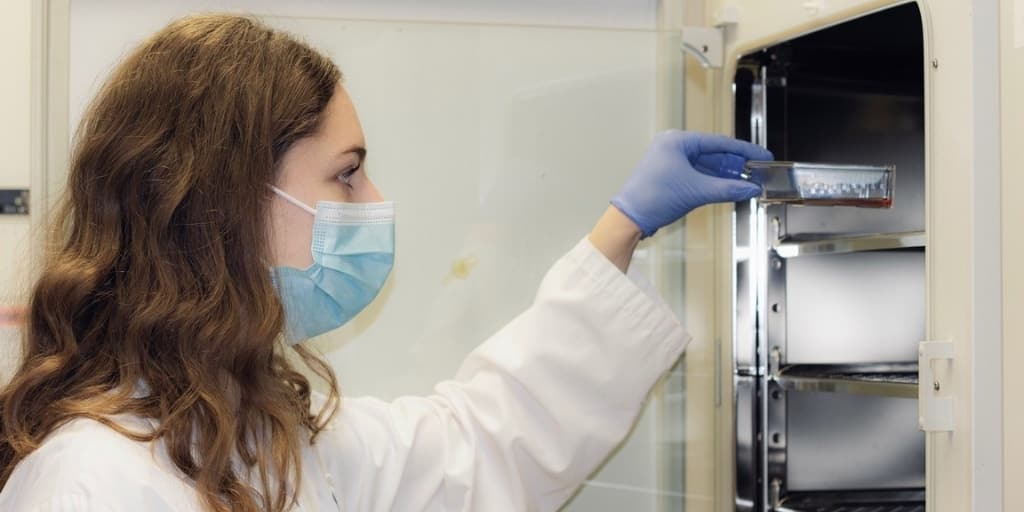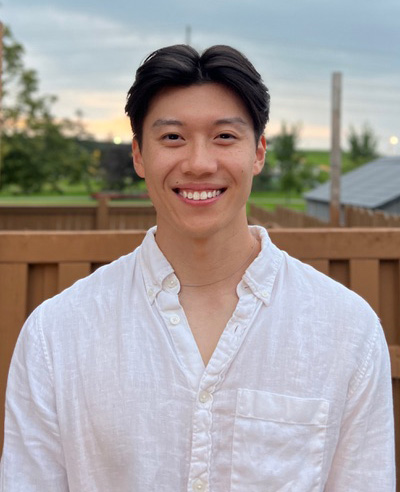1. Who are you? Tell us about yourself.
My name is Sierra Pellizzari. I am a Master of Science (MSc) student in the Department of Anatomy & Cell Biology at Western University. I work under the supervision of Dr. Armen Parsyan and Dr. Alison Allan, and this is my first year in the Translational Breast Cancer Research program. Before starting my MSc, I completed a Bachelor of Medical Sciences degree in Biochemistry and Cancer Biology at Western University.
2. Why is the TBCRU Studentship Award important to you?
The TBCRU Studentship award helps fund my graduate studies and research interests. It helps me investigate subjects that impact the treatment and survival of breast cancer patients. It also allows me to participate in other learning opportunities related to my research – I am very grateful!
3. Tell us about your research. What are you doing and what problems do you hope to solve?
I am working to establish new experimental models from individual breast cancer tumours grown in a petri dish, known as “organoids.” I will then use these patient-derived organoids to test the anti-cancer effects of a new targeted drug called CFI-400945, alone or in combination with radiation therapy. Through this research, I hope to improve outcomes in patients with advanced and metastatic breast cancer.
4. Why is your research important? How can your research be applied in the real world?
My research is essential because organoid models better represent how patients respond to treatment than existing models currently available. Patient-derived organoid models can play a crucial role in drug screening. They can allow for more personalized breast cancer treatments. Additionally, the combination therapy I am looking at could improve individual therapies’ effectiveness and ultimately improve patient outcomes.
5. What inspired your research?
My supervisor, Dr. Parsyan, has previously investigated the effectiveness of the CFI-400945 drug in immortalized breast cancer cell lines. New treatment options for breast cancer patients are crucial, and the results in these early studies of CFI-400945 are promising. This has inspired my project to continue researching this drug in patient-derived organoid models combined with radiation therapy. The driving force behind our research is the many breast cancer patients who are still seeking a treatment that will work for them.
6. Why are you passionate about breast cancer research?
I am passionate about breast cancer research because breast cancer impacts so many women in Canada and worldwide. Breast cancer research is continually advancing and improving treatment options and survival for this disease. I am very proud to contribute to the great network of researchers.
7. Why do you think breast cancer research matters?
Breast cancer affects approximately 1 in 8 Canadian women. It is a leading cause of cancer death, despite many recent advances in understanding and treatment. Breast cancer research is crucial to improve our understanding of the disease and our ability to develop and test new treatments that can help improve outcomes for women with breast cancer. Research provides further information that doctors can use when treating patients to help fight the disease.
8. What excites you about your work?
What excites me most about my work is its potential to advance the treatment of women with breast cancer. Through research, I can study new topics and discover things that previously have not been known, and this is very exciting to me!
9. What do you see yourself doing in the future?
In the future, I hope to be working as a medical oncologist who can treat cancer patients while also continuing my work in breast cancer research. Wherever I end up, I hope to help others and advance research in the cancer field.
10. What do you like to do when you aren’t working on research?
When I’m not working on research, I enjoy reading fictional novels, baking new recipes, playing soccer or football, and zoom calls with friends
SUPPORT RESEARCHERS LIKE SIERRA PELLIZZARI BY CONSIDERING A DONATION TO THE BREAST CANCER SOCIETY OF CANADA. FIND OUT HOW YOU CAN HELP FUND LIFE-SAVING RESEARCH, VISIT BCSC.CA/DONATE TODAY.




